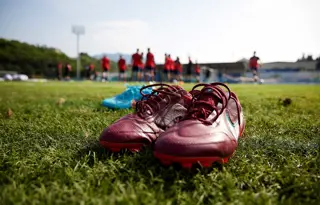News
How the Portuguese union is tackling human trafficking in football

- Portuguese player union Sindicato dos Jogadores (SJPF) created a dossier to summarise its efforts in tackling human trafficking in football
- The union has helped dozens of players who were cheated by unscrupulous people
- The SJPF has been working with the government and various organisations to help protect players
Portuguese player union Sindicato dos Jogadores (SJPF) has provided support to dozens of players who in recent years were left stranded in Portugal as victims of human trafficking. These players arrived expecting to start or further develop their professional football careers, but were eventually cheated by people who had tempted them with false promises.
Last year, there was significant media attention when Portuguese police and customs security uncovered a football academy (BSports) that kept young players from 13 to 21 years of age against their will with one goal in mind: making profit. Police found around 30 minor players in the academy.
“Public opinion in Portugal was shocked,” said Joao Oliveira, the head of the union’s legal department. “People thought this was one incident, but this was not an isolated case. Since 2015, we have been warning about human trafficking of players.”
The SJPF produced a dossier 'Human Trafficking 2015-2023' to inform the general public and all football stakeholders of the union’s experiences with cheated players and its efforts to tackle this problem.
Oliveira said: “It is one of our main issues, even though it is not really a specific football topic. However, we believe that all football stakeholders have a responsibility to tackle this problem and to work together with the government and other organisations.”

In 2022, the Immigration and Borders Service (SEF) revealed that since 2017 it had identified more than 250 victims of illegal immigration and human trafficking offenses. Around 100 individuals and legal entities had been charged.
In its dossier, the SJPF included 12 cases of players who turned to the union for help after falling victim to human trafficking and scamming or were facing illegal immigration proceedings. The union supported these players with food, accommodation, and very often with a return flight to their homeland.
Most of the players came from South American and African countries such as Argentina, Brazil, Colombia, Cameroon, Guinea-Bisau, Nigeria and Senegal.
“They are deluded by the dream of becoming professional footballers, agree to leave everything behind and go into debt to get an opportunity,” said SJPF President Joaquim Evangelista. “Portugal is a veritable dumping ground for players, the paradise of unscrupulous agents and recruiters, as well as criminal networks linked to human trafficking, who bet on local clubs with little visibility, which lend themselves to being ‘surrogates’, like a talent laboratory to test the footballing qualities of the young people they recruit.
“Victims are not just numbers, they have faces, and in our dossier we honour all the players who agreed to tell their story publicly to prevent the same happening to others.”

Since 2015, the union has raised the issue with institutions, authorities and the government. This has resulted in various measures, including a protocol the SJPF signed with the SEF, the football federation (FPF) and the league that should arrange better cooperation between all parties.
In recent years, the SJPF has successfully advocated for regulations that prevent players being brought in and signed by amateur teams and make clubs or managers responsible when “their” foreign players are found to be in an illegal situation. Legal chief Oliveira said: “Although there may always be situations of fraud, the restrictions have made the FPF’s control and SEF’s inspection more effective.”
Since the BSports academy case, the union is part of a working group set up by the Secretary of State for Youth and Sport, which aims to address solutions to combat the problem. The SJPF proposed concrete measures to improve education and awareness of clubs, managers, sports agents and civil society, to better monitor and respond to players in need, for example by creating a system to support all players who are victims regardless of the legal classification of their specific case, in terms of accommodation, social integration and, if necessary, repatriation.
